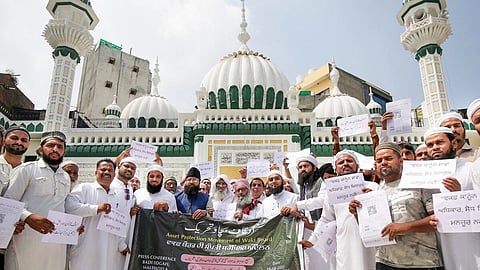

NEW DELHI: With the Waqf (Amendment) Bill 2024 expected to be introduced in the second leg of the Budget Session on March 10, Parliament may witness fierce resistance from the Opposition parties determined to block the Bill.
According to sources, the Union Cabinet on February 19 approved the updated Waqf (Amendment) Bill with the changes suggested by the Joint Parliamentary Committee (JPC), setting the tone for the contentious Bill’s introduction.
An Opposition member who is a part of the JPC said that the Opposition parties will fight unitedly against the Bill. The leader said that the INDIA bloc parties could sit together and plan a strategy before the Parliament session began.
The JPC report on the Bill was tabled in both Houses of Parliament on February 13, sparking strong opposition protests over the alleged redaction of certain portions of the dissent notes on the report. Later, the government tabled a corrigendum on it in Rajya Sabha. In January, the committee approved all amendments proposed by NDA members while rejecting Opposition changes.
Out of 44 amendments, the panel accepted only 14 changes suggested by ruling NDA members through a vote. The revised Bill, incorporating the approved amendments, was formally adopted by the panel on January 29.
After several deliberations, the JPC submitted its final report to Lok Sabha Speaker Om Birla on January 30.
Congress MP Syed Naseer Hussain told this paper in an earlier interview that only 40- 50 percent of the members’ redacted portions of dissent notes were added back in the new version, and his party will take up the issue in the second leg of the session.
Key provisions of the Bill
Councils of both Central & State Waqf boards will have two Muslim women as members
The State Council will also have one member from the Muslim OBC community
State governments are allowed to establish separate Waqf boards for Aghakhani and Bohra communities
There is provision to protect women’s inheritance rights in
Waqf Alal Aulad (family waqfs)
Registered Waqf by User will continue to be recognised, except in cases where the property is under dispute or owned by the government